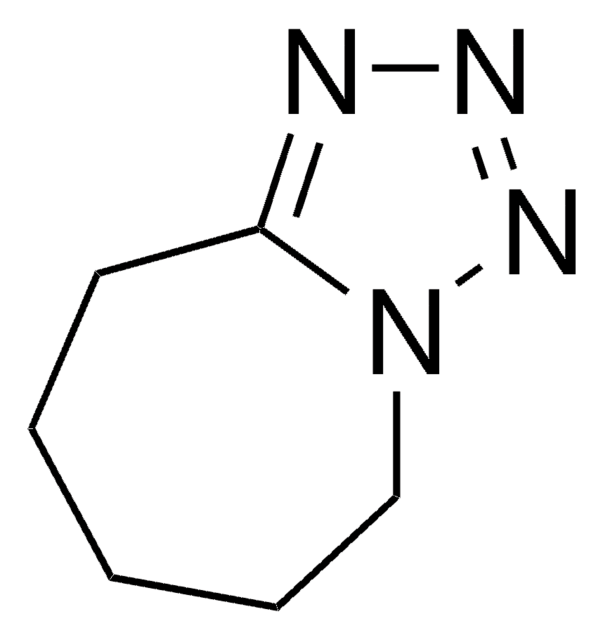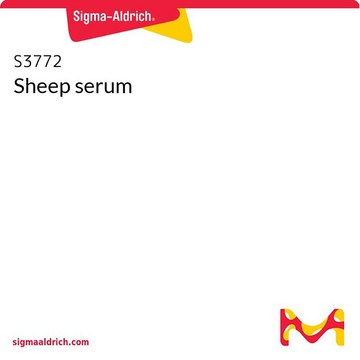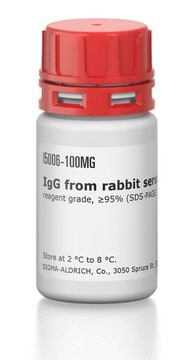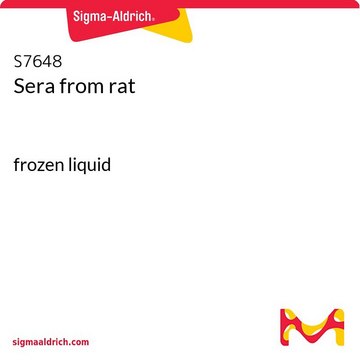All Photos(1)
About This Item
UNSPSC Code:
12352203
NACRES:
NA.46
biological source:
rabbit
sterility:
non-sterile
shipped in:
dry ice
Recommended Products
biological source
rabbit
Quality Level
conjugate
unconjugated
sterility
non-sterile
contains
preservative
shipped in
dry ice
storage temp.
−20°C
Looking for similar products? Visit Product Comparison Guide
General description
Rabbit serum is pooled from a normal donor population.
Application
Rabbit serum has been used as a control in:
- immunohistochemistry (IHC)
- α-toxin neutralization experiments (1:200)
- indirect immunocytochemistry
- immunoprecipitation
Disclaimer
Unless otherwise stated in our catalog or other company documentation accompanying the product(s), our products are intended for research use only and are not to be used for any other purpose, which includes but is not limited to, unauthorized commercial uses, in vitro diagnostic uses, ex vivo or in vivo therapeutic uses or any type of consumption or application to humans or animals.
Signal Word
Warning
Hazard Statements
Precautionary Statements
Hazard Classifications
Aquatic Chronic 2 - Eye Irrit. 2 - Skin Irrit. 2 - Skin Sens. 1
Storage Class Code
10 - Combustible liquids
WGK
WGK 3
Flash Point(F)
Not applicable
Flash Point(C)
Not applicable
Personal Protective Equipment
dust mask type N95 (US), Eyeshields, Gloves
Choose from one of the most recent versions:
Already Own This Product?
Find documentation for the products that you have recently purchased in the Document Library.
Customers Also Viewed
I L van Wezel et al.
Biology of reproduction, 55(5), 1003-1011 (1996-11-01)
Classically, primordial follicles have flattened pre-granulosa cells that become cuboidal and divide during follicular activation. This change in shape is thus an index of activation. To examine this and follicular morphology in cattle, ovaries were processed for light and electron
Rurika Oka et al.
Genome biology, 18(1), 137-137 (2017-07-25)
While most cells in multicellular organisms carry the same genetic information, in each cell type only a subset of genes is being transcribed. Such differentiation in gene expression depends, for a large part, on the activation and repression of regulatory
Benoit Molinie et al.
Nature methods, 13(8), 692-698 (2016-07-05)
N(6)-Methyladenosine (m(6)A) is a widespread, reversible chemical modification of RNA molecules, implicated in many aspects of RNA metabolism. Little quantitative information exists as to either how many transcript copies of particular genes are m(6)A modified ('m(6)A levels') or the relationship
Albina F Ramalho et al.
Journal of neuroinflammation, 15(1), 10-10 (2018-01-11)
The consumption of large amounts of dietary fats activates an inflammatory response in the hypothalamus, damaging key neurons involved in the regulation of caloric intake and energy expenditure. It is currently unknown why the mediobasal hypothalamus is the main target
G Cauffman et al.
Human reproduction (Oxford, England), 24(1), 63-70 (2008-10-01)
During human preimplantation development, early blastomeres are believed to be totipotent. It is likely, however, that blastomeres are allocated to a specific lineage prior to any morphological differentiation. NANOG, SOX2 and SALL4 are transcription factors that play a key role
Our team of scientists has experience in all areas of research including Life Science, Material Science, Chemical Synthesis, Chromatography, Analytical and many others.
Contact Technical Service













